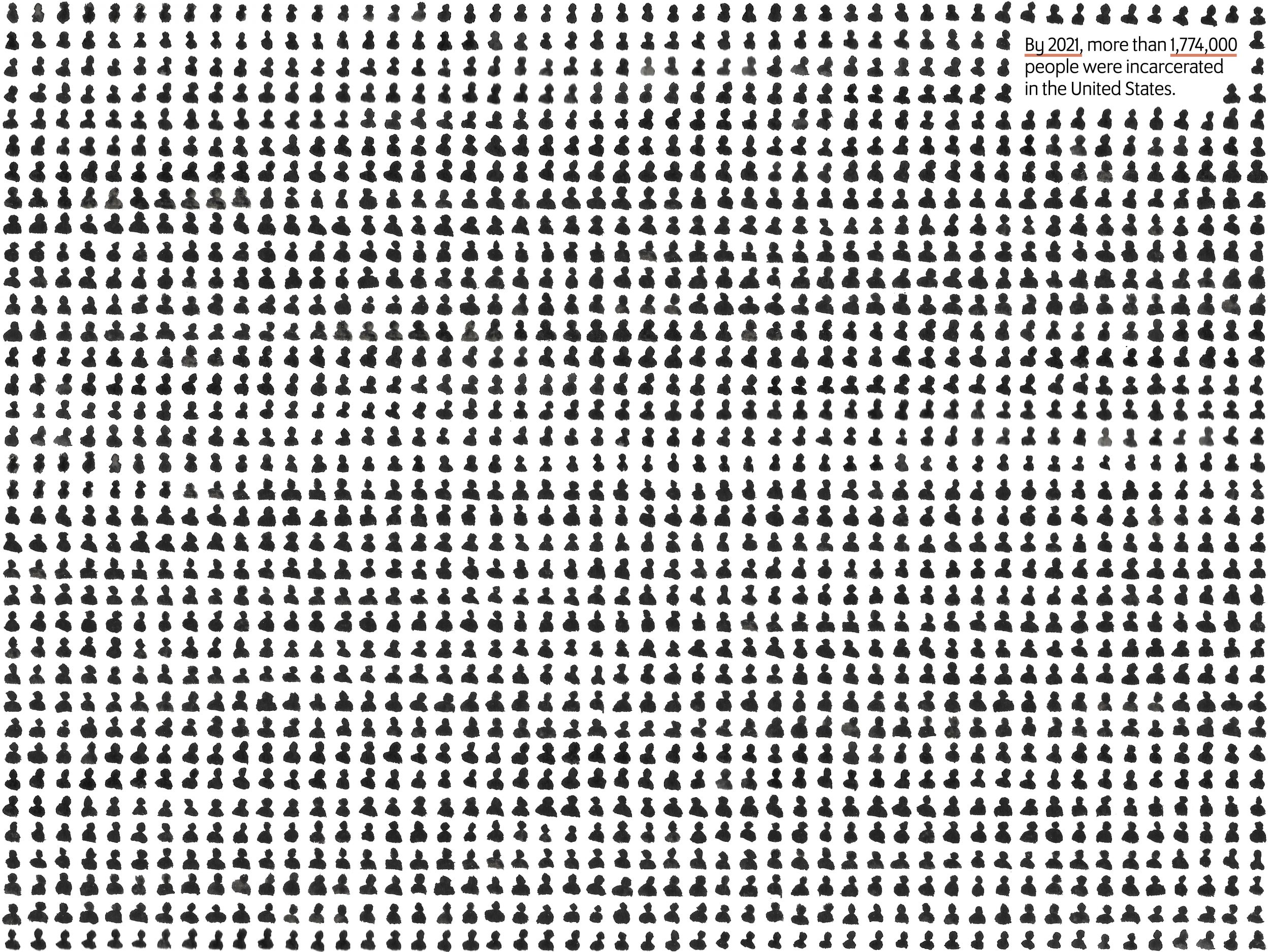Changing Courts from the Ballot Box
In Los Angeles, judges are elected, and most are lifelong prosecutors. Community members are now fighting this carceral status quo by working to elect career public defenders.

In Los Angeles, judges are elected, and most are lifelong prosecutors. Community members are now fighting this carceral status quo by working to elect career public defenders.
“They tell us we have the right to take up / space. But they come in armor and shields / that say otherwise.”
When the social safety net gets shredded, incarceration increases. We can’t just count on mutual aid; the most vulnerable among us need government benefits.

collection
Inquest’s landing page for writing by our incarcerated and formerly incarcerated authors. Finalist for the 2025 National Magazine Awards.

Domestic violence survivors shouldn’t have to survive police violence, too. It is time to follow the evidence to interventions that actually work.
Programs that send literature to incarcerated people provide a vital lifeline, facilitating personal growth and imaginative escape.
Incarcerated people are eligible for Pell Grants again—but will prisons actually allow us to flourish as college students?
Inquest, finalist for the 2025 National Magazine Award for General Excellence, brings you insights from the people working to create a world without mass incarceration.
Sign up for our newsletter to get the latest in your inbox every Saturday.

Reentry guides supplied by prisons are light on details and heavy on judgement. That’s why formerly incarcerated people are writing a guide for New York filled with their own lived experience.
Language of ‘trafficking’ and ‘slavery’ disempowers migrant sex workers while directing attention away from state violence.
The sweeping conspiracy and terrorism indictment of Stop Cop City activists reveals the new playbook for state suppression of protest. But we can still win.
Policymakers claim to have turned away from the “old” war on drugs—but everything about their “new” approach is still focused on punishment and surveillance.
Nuclear abolitionists in the Plowshares movement have been imprisoned for bringing attention to the fact that nuclear weapons are immoral and illegal under international law.
Being forced by prison authorities to publish anonymously caused me to reflect on the long history of Black authors choosing names in response to state violence.

I rejected a plea deal and chose instead to go to trial. I would not understand until too late that I had placed a target on my back.
Now more than ever communities must protect our own, even as we prepare for a long battle.
Leaving no one behind, abolitionists plan for a transformed future—even as we attempt to address pain points in the here and now.

At a time of political realignment, progressive movements need to get back to building relationships, across differences, and growing their base.
There are no good prisons—but even minor design changes could make them less awful to be trapped inside.
A decade of victimization landed a Harlem kid in prison. More than three decades later, he has not allowed prison to define his life story.

Placing criminal system tools in health-care providers’ hands causes irreparable damage to patient care and public trust.
A new anthology invites parents into the work of building a world without prisons.
In my many years as a public defender, I accepted the legal rationales for pretrial detention. But I can’t anymore.
“Art is not a leisure activity. Art is a redemptive, powerful, meditative, actionable force within a person—within a human being.”
A transnational approach to abolition brings a new appreciation for community—both broader and narrower than the nation-state—as the site for care, justice, and democratic self-governance.
Should advocates looking to unwind our nation’s punitive excesses engage a Supreme Court that set them in motion?

Electing progressive sheriffs only goes so far toward curbing the structural forces that sustain mass incarceration.
The push by Atlanta and other cities to build large police training facilities follows on a long history of armories as both symbols and manifestations of the state’s power.
‘Excited delirium syndrome’ is a tool the state invented to evade accountability whenever people of color die at the hands of police.

An incarcerated writer and advocate in California implores: “Don’t waste my time trying to make it more comfortable for me in here.”
Ending prison slavery and giving fair wages to incarcerated workers are necessary steps on the pathway to justice.
Abolition requires the world-building work of imagining all the many life-affirming alternatives to incarceration.

I kept my promise to break bread with my friend Dobie one last time, right before the state of Louisiana put him to death.
What does genuine safety look like? And what will it take to prioritize it rather than simply managing inequality and other injustices?
Participatory defense gives families and communities an opportunity to protect their own in courtroom spaces that have long robbed them of power.
Credit scoring is control by another name. It keeps marginalized people from the means of survival and exposes them to punishment.
The administrative remedy process is a roadblock to challenging inhumane prison conditions. With the help of advocates, people in prison are fighting back.
While on parole in Oregon, homelessness, unemployment, and lack of services kept me in survival mode. This is not public safety.

Series
Essays exploring how mass incarceration shapes, and is shaped by, our shared world and built spaces.

Defund gives us a platform and pathway to reimagine a society with less police, more care, and services that meet the needs of all.
A hopeful, practical new book shows how abolitionist organizers today are building the world anew.
Mass incarceration rests on false narratives that carceral institutions themselves control. But some of us are fighting back.

Since our launch, we have published a number of essay series and collections examining drivers of and solutions to our crisis of mass incarceration. Find them all here.
Recovering a vision of queer solidarity with incarcerated people may just be what people disaffected by the gay rights movement need today.
In seeking funding for non-carceral mental health crisis response, we’re hoping to bring a small piece of our abolitionist horizon to our city.
Activism must involve incarcerated people—but few outside advocates really understand the dangers and limitations that imprisoned organizers face.
Inquest publishes new, thought-provoking ideas and essays weekly.
Join our mailing list to stay on top of the latest.